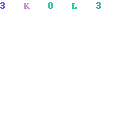Depression is a prevalent mental health condition that affects millions of people worldwide. It can manifest as a persistent feeling of sadness, loss of interest or pleasure in activities, changes in appetite or sleep patterns, and even thoughts of self-harm. While the causes of depression are complex and multifaceted, cognitive-behavioral therapy CBT has emerged as an effective approach to help individuals unravel the knots of depression and work towards healing. Cognitive-behavioral therapy is a form of psychotherapy that focuses on identifying and changing negative thought patterns and behaviors contributing to emotional distress. CBT operates on the premise that our thoughts, feelings, and actions are interconnected and can influence one another. By altering the way we think and behave, individuals can experience improvements in their emotional well-being. One of the core principles of CBT is cognitive restructuring, which involves challenging and modifying distorted thought patterns. When someone is depressed, they may engage in cognitive distortions, such as overgeneralizing negative experiences or catastrophizing future events.

Another essential aspect of CBT is behavioral activation, which focuses on encouraging individuals to engage in activities they have withdrawn from due to depression. Depression often leads to a lack of motivation and energy, causing people to avoid previously enjoyable activities and isolate themselves from others. Behavioral activation helps individuals to gradually reintroduce positive and fulfilling activities back into their lives, even when they may not feel like doing so initially. As they begin to re-engage with these activities, their mood may start to improve, leading to a positive feedback loop. CBT also places significant importance on identifying and challenging negative core beliefs. These beliefs are deeply ingrained and often subconscious, influencing how individuals perceive themselves, others, and the world around them. For example, someone with depression might have a core belief that they are unlovable or worthless. CBT seeks to bring these beliefs to light and examine their validity, often through empirical evidence and self-reflection. Over time, these negative core beliefs can be replaced with more positive and empowering ones.
The therapeutic process in CBT is collaborative, with the therapist and client working together to set achievable goals and monitor progress. The therapist provides a supportive and non-judgmental environment, helping the individual develop coping skills to deal with challenges and setbacks. CBT sessions are structured and goal-oriented, focusing on practical strategies to address specific issues and check now https://www.havenpsychiatrynp.com/services/cbt/. CBT is not a one-size-fits-all approach, and therapists tailor the treatment to meet each individual’s unique needs. The duration of therapy can vary depending on the severity of depression and the progress made. In some cases, CBT may be used in conjunction with other therapies or medications to enhance its effectiveness. Numerous studies have demonstrated the efficacy of CBT in treating depression. Research has shown that CBT can be as effective as medication in relieving symptoms of depression and preventing relapse. Moreover, CBT equips individuals with coping skills that can be applied beyond the therapy setting, empowering them to manage future challenges effectively.